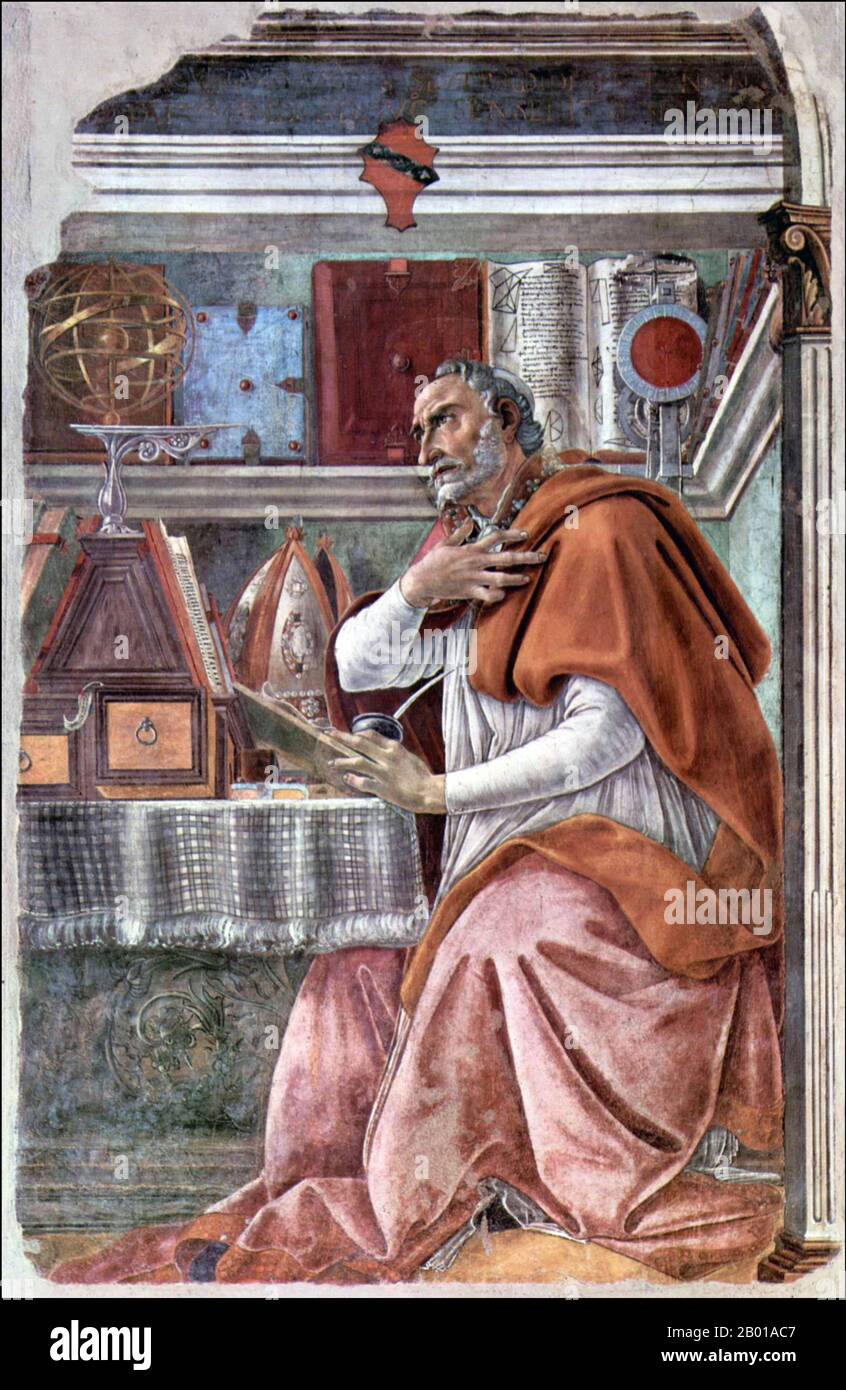Algeria/Italy: Saint Augustine of Hippo Regius (13 November 354 - 28 August 430). Fresco by Sandro Botticelli (c. 1445 - 17 May 1510), Ognissanti Church, Florence, 1480. Augustine of Hippo (Aurelius Augustinus Hipponensis), also known as Augustine, St. Augustine, St. Austin, St. Augoustinos, Blessed Augustine or St. Augustine the Blessed, was Bishop of Hippo Regius, the present-day Annaba, Algeria. He was a Latin-speaking philosopher and theologian who lived in the Roman Africa Province. His writings were very influential in the development of Western Christianity.

Image details
Contributor:
CPA Media Pte Ltd / Alamy Stock PhotoImage ID:
2B01AC7File size:
51.2 MB (1.7 MB Compressed download)Releases:
Model - no | Property - noDo I need a release?Dimensions:
3415 x 5242 px | 28.9 x 44.4 cm | 11.4 x 17.5 inches | 300dpiDate taken:
10 June 2011Photographer:
Pictures From HistoryMore information:
This image could have imperfections as it’s either historical or reportage.
Augustine of Hippo (Aurelius Augustinus Hipponensis, November 13, 354 – August 28, 430), also known as Augustine, St. Augustine, St. Austin, St. Augoustinos, Blessed Augustine, or St. Augustine the Blessed, was Bishop of Hippo Regius, the present-day Annaba, Algeria. He was a Latin-speaking philosopher and theologian who lived in the Roman Africa Province. His writings were very influential in the development of Western Christianity. In his early years Augustine was heavily influenced by Manichaeism and afterward by the Neo-Platonism of Plotinus. After his conversion to Christianity and baptism in 387, Augustine developed a new approach to philosophy and theology, accommodating a variety of methods and different perspectives. He believed that the grace of Christ was indispensable to human freedom, and he framed the concepts of original sin and just war.